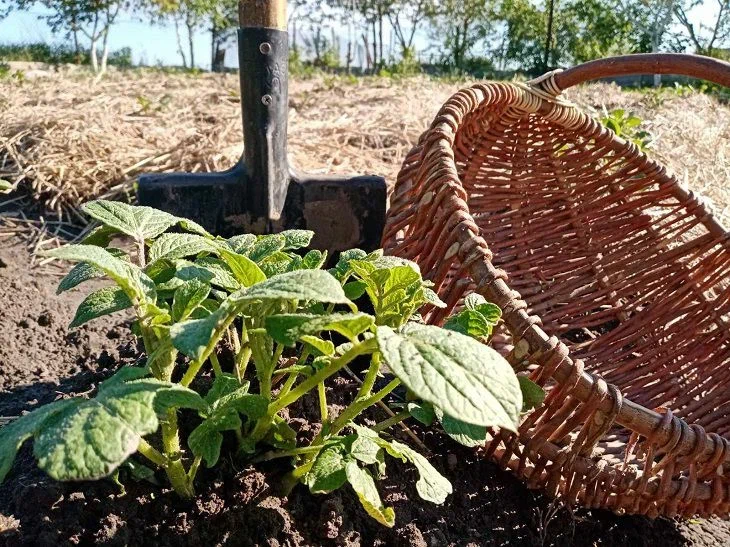Imagine going out into the garden every morning and your tomatoes, cucumbers and roses greet you with lush greenery and bright colours. It seems as if they are whispering, “Thank you for noticing our little secrets.”
You might be surprised, but plants can actually “tell” you what they need. You just need to learn to listen to them.
And if you are ready to discover unobvious but simple ways to make your plot more fertile, this article will become your guide to the world of harmony with nature.

Let's start with the ground under our feet. We often forget that soil is a living organism, not just "ground". In order for it to remain fertile, it cannot be constantly disturbed. Try replacing deep digging with shallow loosening.
This way you will preserve the beneficial microorganisms that live in the upper layers and help plant roots absorb nutrients. And also, mulch the beds. Mown grass, fallen leaves, or even regular newspaper will do.
Mulch not only retains moisture, but also gradually turns into humus, creating ideal conditions for earthworms - natural "agronomists".
Water is life, but too much of it can be a problem. Water less often, but more abundantly. Frequent surface watering leads to the fact that plant roots are lazy to go deeper in search of moisture, remaining near the surface, where they easily dry out.
Pour water under the roots, avoiding the leaves - this will reduce the risk of fungal diseases. And remember the golden rule: it is better to water early in the morning or after sunset.
Drops on leaves under the scorching sun act like lenses, leaving burns.
Did you know that plants can "be friends"? Some crops growing nearby protect each other from pests and diseases.
For example, basil planted next to tomatoes repels aphids and improves the taste of the fruit. Carrots and onions are ideal neighbors: onions repel carrot flies, and carrots repel onion flies.
But it is better to keep potatoes and cucumbers away from each other - they compete for nutrients.
Make a planting plan taking these nuances into account, and you will be surprised at how much less effort you will have to spend on dealing with problems.
Compost is "black gold" for the garden, but not everyone dares to use it. Many are afraid of the smell or think it is difficult.
It's actually easier than it sounds. Collect food scraps (except meat and citrus), seedless weeds, paper, and dry leaves in a pile. Mix occasionally with a pitchfork to provide oxygen.
In just six months, you will have free fertilizer that not only nourishes plants, but also improves the soil structure. And no, the compost heap does not smell if there is no rotting food in it!
Weeds are a headache for every summer resident. But what if you turn them into allies? Nettle, dandelion and couch grass can be used to make “green fertilizer”.
Fill them with water in a barrel, let them sit for a week, then dilute 1:10 and water the beds. This fertilizer is rich in nitrogen and microelements.
Some weeds also serve as indicators of soil conditions. For example, horsetail grows on acidic soils, and coltsfoot on clay soils. Take a closer look at them - they will tell you what needs to be corrected.
Pruning is not only about aesthetics. Bushes and trees need timely removal of old and diseased branches. But it is important not to overdo it. For example, currants are pruned in early spring, removing shoots older than 4 years.
It is important to thin out the crown of apple trees so that sunlight can reach the fruit. But raspberries are cut to the root after harvesting - new shoots will grow next year, which will produce more berries. The main rule is to use a sharp pruner and disinfect it after each plant.
The garden may seem dormant in winter, but it's the best time to prepare for the new season. Hang bird feeders - they'll thank you in the spring by killing pests.
Collect eggshells, dry banana peels and used coffee grounds - all of this will come in handy for spring fertilizing.
And also, draw plans, experiment with new varieties and believe: even small changes will bring big results.
After all, a garden is not work, but a dialogue with nature, where your patience and attention turn into a harvest, aromas and colors that are worth living for.
